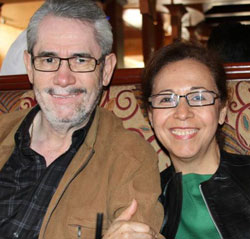October 3, 2014
|
 Jeff Bleijerveld, Director of Global Ministries
Jeff Bleijerveld, Director of Global Ministries
With the Ebola epidemic raging in Sierra Leone, many have been asking what more can be done to help the United Brethren people living there. The outbreak is centered in the part of the country where we have churches.
People responded overwhelmingly to our request to help fund the Ebola prevention and awareness project, which you can read about on UBCentral. In fact, we exceeded the $15,000 goal. That enabled us to fund further programming in other areas where Ebola is advancing. Today (October 3) Global Ministries is sending $3,300 received above what we needed. This will enable Sierra Leone Conference to expand training to Bo, Freetown, and other areas where we have UB churches, but which haven’t yet been seriously affected by Ebola.
Food for Sierra Leone
Commerce in Sierra Leone is at a standstill. Airlines, shipping, local markets, imports, exports, development projects, investments—every part of the economy is affected. The World Bank predicts that Ebola could be a “catastrophic blow” to the economies of Sierra Leone, Guinea, and Liberia. Food is scarce, and what is available is dramatically inflated in price.
 Late this week we learned of an opportunity to send food to Sierra Leone for our United Brethren people. Shipping containers are being sent through a Christian ministry called Brothers Brother, in Pittsburgh, Pa. A few years ago, this group donated 80 hospital beds and shipped them for us to the Mattru Hospital.
Late this week we learned of an opportunity to send food to Sierra Leone for our United Brethren people. Shipping containers are being sent through a Christian ministry called Brothers Brother, in Pittsburgh, Pa. A few years ago, this group donated 80 hospital beds and shipped them for us to the Mattru Hospital.
A 40-foot container is being packed right now with medical and relief supplies for various churches and medical centers. They have room for one 4x4x6-foot pallet for the United Brethren.
 Pastor Steve Clulow (left) and his folks at the Cochranton United Brethren Church (Cochranton, Pa.) have graciously offered to receive all donations and ready the pallet for delivery to Pittsburgh. Here is how you can become part of project.
Pastor Steve Clulow (left) and his folks at the Cochranton United Brethren Church (Cochranton, Pa.) have graciously offered to receive all donations and ready the pallet for delivery to Pittsburgh. Here is how you can become part of project.
Where to Send Food
Send the following items ASAP, by Oct 15, to the Cochranton UB Church:
- Small bags of rice (half-pound to one-pound only).
- Dried beans (half-pound to one-pound only).
- Small cans of tomato paste.
- Containers of dehydrated onion.
- Canned chicken (good sources include Gordon’s, Sam’s, and Costco).
Please do NOT send large bags (i.e. 40 lb.) or expired items.
Our goal is to have everything at the Cochranton Church no later than October 15. That means you’ll need to ship or deliver your items by Monday, October 13.
If you can’t make that date, don’t worry. We plan to send more in an upcoming shipment.
Here is the address for the church:
Cochranton Community Church
3993 E. Church Street
Cochranton PA 16314
Phone: (814) 425-2905
Cost for a Future Container
It costs $11,000 to send a container. A Baptist denomination is funding this current container, so we get a free ride. Other denominations have paid for six previous containers.
We want to cover the cost of the next container. If you’d like to make a donation toward that $11,000 expense, make your check out to Global Ministries and send it to:
Global Ministries
302 Lake Street
Huntington IN 46750
Be sure to indicate that your gift is for “West Africa Relief.”
If you have questions, feel free to contact us at: (260) 356-2312.
 The following update was sent to Jeff Bleijerveld, Director of Global Ministries, on Wednesday, October 22.
The following update was sent to Jeff Bleijerveld, Director of Global Ministries, on Wednesday, October 22.
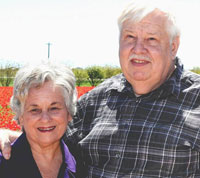 Roger and Marilyn Reeck (right) are UB endorsed missionaries serving with Wycliffe in Honduras. They sent this update on October 4, 2014.
Roger and Marilyn Reeck (right) are UB endorsed missionaries serving with Wycliffe in Honduras. They sent this update on October 4, 2014. Harold and MaryAnn Hancock returned to Jamaica on Tuesday, October 7 after being in the States for nearly a year. They have invested themselves for two years in working with students at Regent College of the Caribbean.
Harold and MaryAnn Hancock returned to Jamaica on Tuesday, October 7 after being in the States for nearly a year. They have invested themselves for two years in working with students at Regent College of the Caribbean. Jeff Bleijerveld, Director of Global Ministries
Jeff Bleijerveld, Director of Global Ministries Late this week we learned of an opportunity to send food to Sierra Leone for our United Brethren people. Shipping containers are being sent through a Christian ministry called Brothers Brother, in Pittsburgh, Pa. A few years ago, this group donated 80 hospital beds and shipped them for us to the Mattru Hospital.
Late this week we learned of an opportunity to send food to Sierra Leone for our United Brethren people. Shipping containers are being sent through a Christian ministry called Brothers Brother, in Pittsburgh, Pa. A few years ago, this group donated 80 hospital beds and shipped them for us to the Mattru Hospital. Pastor Steve Clulow (left) and his folks at the Cochranton United Brethren Church (Cochranton, Pa.) have graciously offered to receive all donations and ready the pallet for delivery to Pittsburgh. Here is how you can become part of project.
Pastor Steve Clulow (left) and his folks at the Cochranton United Brethren Church (Cochranton, Pa.) have graciously offered to receive all donations and ready the pallet for delivery to Pittsburgh. Here is how you can become part of project.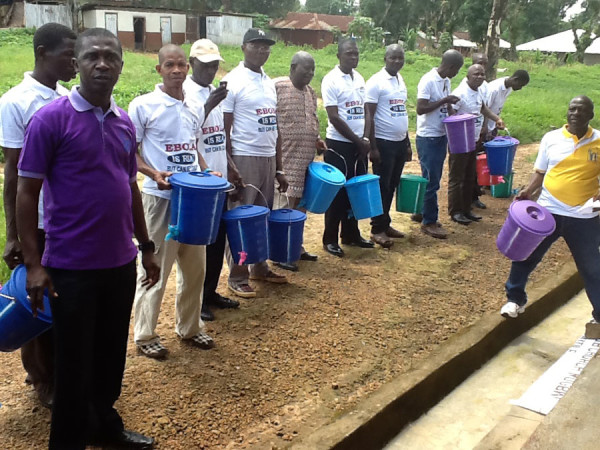
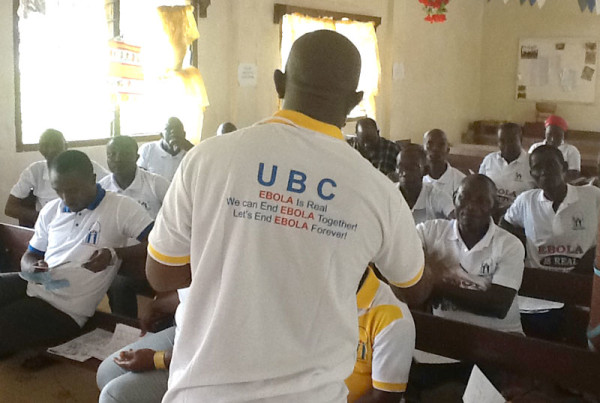
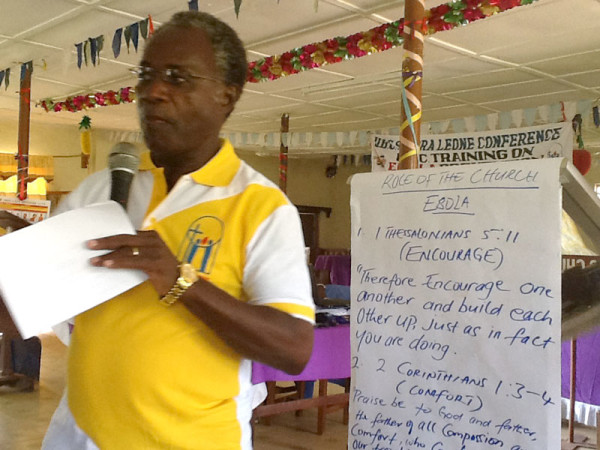
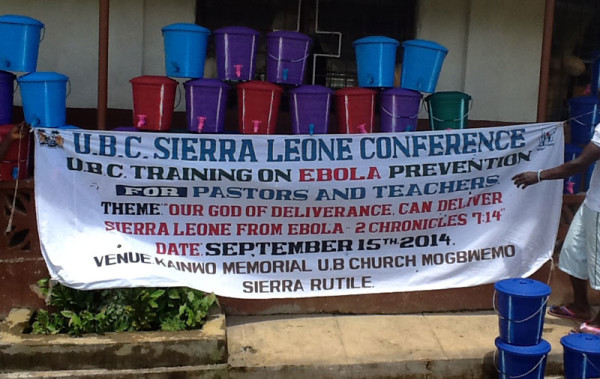
 John Pessima (right), Bishop of Sierra Leone Conference
John Pessima (right), Bishop of Sierra Leone Conference Dates: January 3-10, 2015.
Dates: January 3-10, 2015.